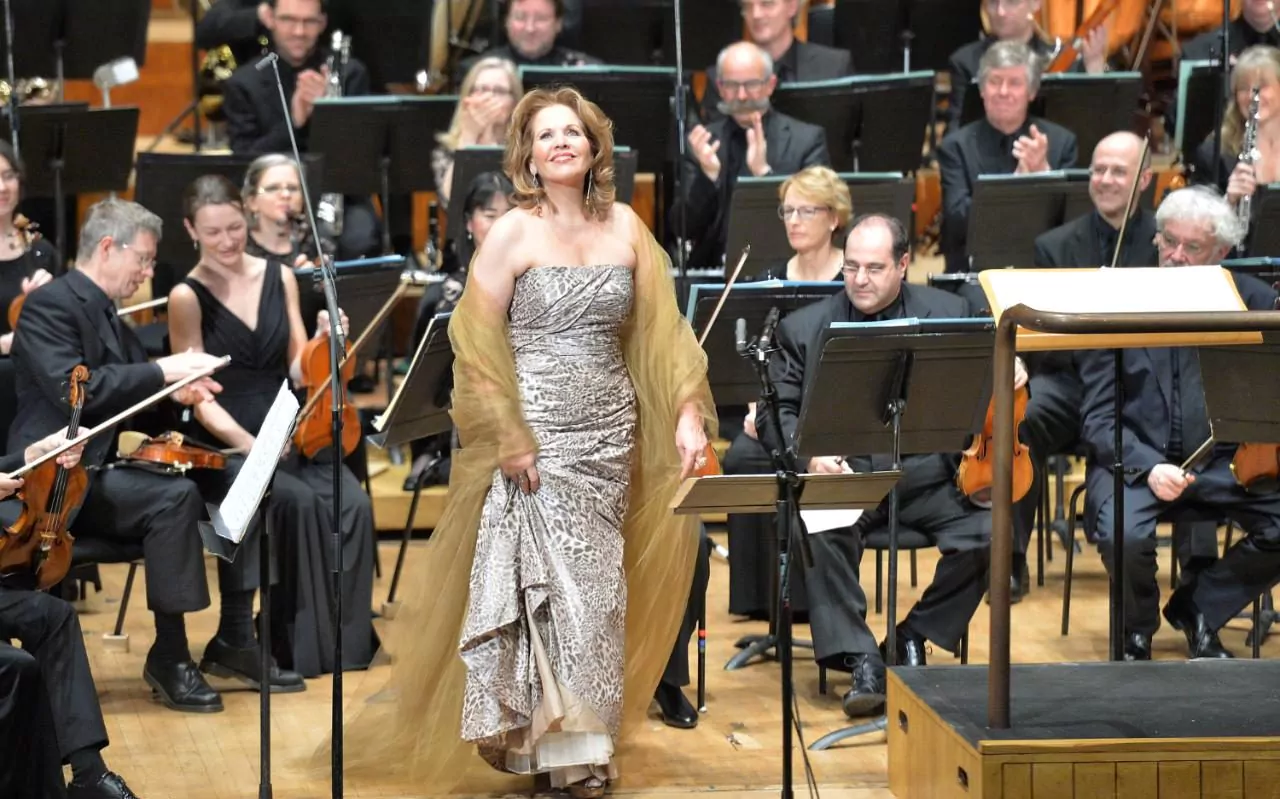
Renée Fleming, Barbican, review: ‘a proper diva’
By Ivan Hewett, The Telegraph
To hear Renée Fleming, possessor of the most sheerly beautiful soprano voice on the planet, is a treat we normally hope for only once in an evening. She arrives, bestows her magic, and departs. On this occasion she bestowed it twice, which was quite a coup for the BBC Symphony Orchestra. Before the interval she sang eight songs by Debussy, in recent orchestral arrangements by the seventysomething British composer Robin Holloway. After it came The Strand Settings, four songs on texts by the late American poet Mark Strand written for Fleming by Swedish composer Anders Hillborg.
These were the centrepieces in a concert which ravished the ears constantly, and at times stirred deeper feelings too. It was book-ended by two pieces of French orchestral gorgeousness, the first of which, Debussy’s evocation of a faun’s erotic dreams, L’Après-midi d’un Faun, is clearly a favourite of conductor Sakari Oramo. In the past he’s made the faun seem too post-coitally languorous for my taste, but on this occasion languor was offset by a bracing urgency. Oramo drew a similarly sharp contrast in the closing piece, the 2nd Suite from Ravel’s Daphnis & Chloe. It was daringly slow for the opening sunrise (the flutes twittering away in a dawn chorus), and correspondingly delirious in the final dance.
This proved what good shape the BBC SO is in right now, and they certainly played royally for Renée Fleming. Proper diva that she is, she appeared in two frocks: a light green one for the nature imagery and delicate shifting colours of the Debussy songs, and a deep indigo gown for the nocturnal stillness of The Strand songs (Fleming leaves nothing to chance). The difference in look was matched by the difference in vocal tone. Debussy’s songs touched on moods of melancholy or regret or rapture but never settled in them for long, and Fleming’s tone was similarly urgent and fleeting – an effect magnified by Holloway’s deft and suggestive orchestral colours and newly composed transitions.
Hillborg’s songs by contrast unfolded in huge unhurried paragraphs, Fleming trailing her phrases of memory and longing across the music’s static chords, like the stars against the night sky so beautifully evoked in the poems. Starry nights, huge “cosmic” chords, feelings of regret – how easily these elements could have congealed into something sentimental and facile. It’s a tribute to Fleming’s artistry, and Hillborg’s subtlety, that they never did.